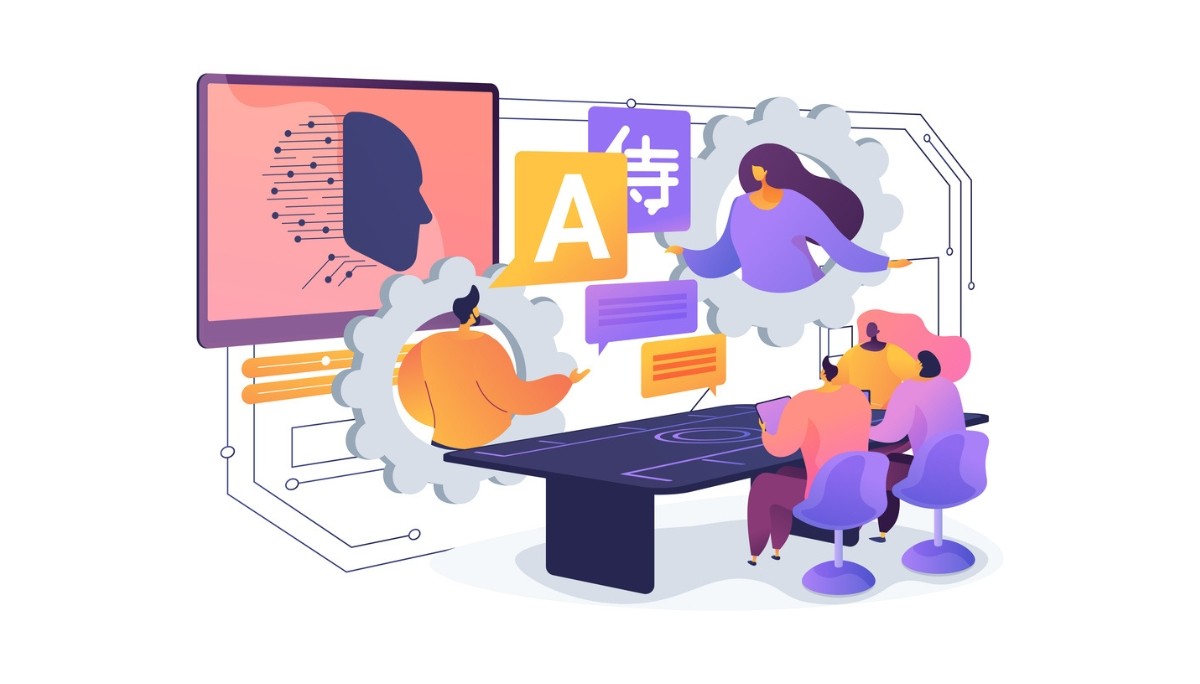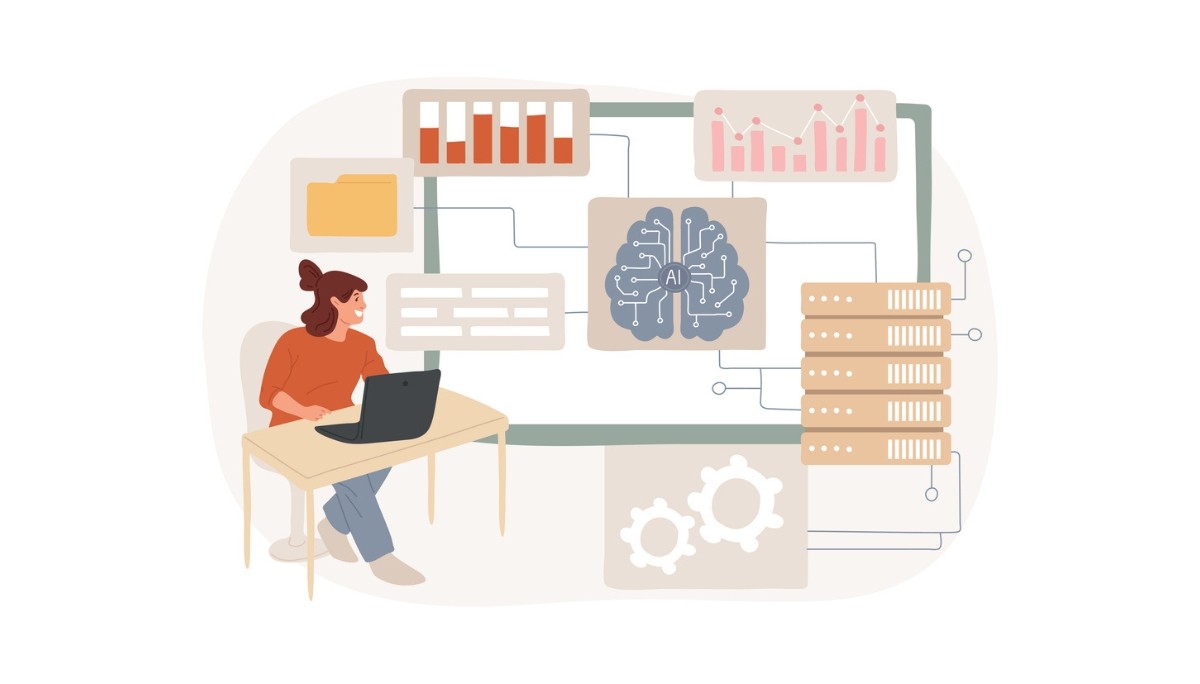Java Full Stack Developer Guide: Skills, Jobs & Resume Tips
By
Ethan Fahey
•
Aug 4, 2025
A Java Full Stack Developer wears many hats, working on both the front-end and back-end of applications using Java. From building user interfaces to managing databases and writing server-side logic, this role requires a versatile skill set. In this guide, we’ll break down the must-have skills, typical job responsibilities, and tips for creating a standout resume. For recruiters looking to hire top-tier talent or engineers aiming to level up their careers, Fonzi AI can help match the right people with the right roles, making the hiring process smarter and more efficient.
Key Takeaways
Java Full Stack Development involves mastering front-end and back-end technologies, including Angular and Spring Boot, essential for creating cohesive web applications.
Proficiency in both technical skills (Java, Spring, React.js) and soft skills (problem-solving, teamwork) is critical for succeeding as a Java Full Stack Developer.
The demand for Java Full Stack Developers is projected to grow significantly, with salaries ranging from $70,000 to over $300,000 depending on experience level and location.
Understanding Java Full Stack Development

Java Full Stack Development refers to the practice of utilizing Java to work on the front-end, back-end, and database layers of web applications. This approach ensures that developers have a holistic understanding of the entire software development process, from designing user interfaces to managing databases and implementing server-side logic. Full stack developers are responsible for building everything a website needs, from user interface elements to server-side functionality.
Java is a reliable engine for web applications, facilitating both the interactive aspects of a website and essential back-end functions. The Java Full Stack Developer specialization encompasses Java fundamentals, front-end development with Angular, and back-end development using Java and Spring Boot. This comprehensive knowledge allows full stack developers to create scalable software solutions that operate independently from external applications, enhancing the platform’s performance.
Working as a Java Full Stack Developer often involves collaboration with cross-functional teams to design effective software solutions, balancing technical requirements with user needs as a software engineer. This collaborative approach ensures that the developed applications are both technically sound and user-friendly.
Key Components of Java Full Stack Development
Java is a critical language used in full stack development for both client-side and server-side programming. Aspiring developers should learn the fundamentals of the Java programming language across its various layers to effectively assist in building Java-based web applications. Java server pages are used to create dynamic web content, enhancing the user experience. Additionally, understanding various programming languages and Java technologies can further enhance a developer’s skill set, including writing efficient Java code. The hypertext markup language is also essential for web applications.
The Spring Framework is often utilized for building robust enterprise applications in Java Full Stack development. Key aspects include:
Spring Boot’s auto-configuration simplifies the creation of RESTful services, which facilitate communication between clients and servers in a stateless manner.
Integration of a database with the Spring Boot backend is vital for managing application data effectively.
Tools like Hibernate simplify database interactions in Java applications. Additionally, Spring MVC plays a crucial role in the overall architecture of these applications.
Developers need to be flexible and innovative to integrate front-end and back-end technologies successfully. Combining React.js for dynamic user interfaces with robust API endpoints for data services allows Java full stack developers to create seamless and responsive web applications.
Roles and Responsibilities of a Java Full Stack Developer

A Full Stack Java Developer is tasked with creating applications using Java, handling front-end, back-end, and database layers. Their main responsibilities include:
Building web applications
Designing user interfaces
Managing databases to support application
They must ensure that the software they develop is responsive and efficient across various platforms.
In addition to these core tasks, full stack developers are responsible for:
Troubleshooting and debugging software issues.
Deploying and maintaining applications in production.
Creating security measures and protecting data to safeguard applications.
Proficiency in both front-end and back-end development is crucial for Java full stack developers in 2025.
Essential Skills for Java Full Stack Developers
Java Full Stack Developers must possess a blend of technical and soft skills to succeed in their roles. A full stack software engineer must have technical skills that include proficiency in Java programming, frameworks like Spring Boot, and front-end technologies like React.js or Angular.
Soft skills such as problem-solving, teamwork, and communication are equally important for successful collaboration in development projects. Balancing these skills is crucial for navigating the job market demands in 2025.
Technical Skills
Java is the most popular programming language among Java Full-Stack Developers, essential for various web applications. Critical skills for success in full-stack Java development include:
Java programming
Frameworks like Spring Boot
Front-end technologies
Database management
A Java Full-Stack Developer must understand the database layer as it is essential for managing application data, particularly through Java Database Connectivity to store data and data structures.
Building RESTful web services is a key skill for Java full stack developers utilizing the Spring Framework. Important front-end technologies for Java Full Stack Developers include:
React.js and Angular, often used to create dynamic user interfaces
HTML
CSS
JavaScript
React.js and Angular are popular choices for building rich client-side applications in full-stack Java. RESTful web services involve implementing APIs in Java using JAX-RS and integrating Hibernate to manage data interactions. A Java full stack developer should be familiar with database management systems such as Oracle, MySQL, MongoDB, and PostgreSQL.
Soft Skills
Effective problem-solving skills are critical for Java full stack developers, allowing them to tackle complex challenges during development. Interviewers often explore candidates’ problem-solving approaches by asking about past challenges and solutions they’ve implemented.
Teamwork and collaboration are essential soft skills, as they facilitate effective communication and project success within development teams. Behavioral interviews may include questions that gauge a candidate’s teamwork abilities and how they resolve conflicts with colleagues.
How to Become a Java Full Stack Developer

Becoming a Java Full Stack Developer involves a combination of education, certifications, and practical experience. Aspiring developers can follow these steps to build the necessary skills:
Pursue education
Obtain certifications
Gain practical experience
Build simple projects
Learn modern frameworks
Practice front-end and back-end integration
Full stack Java developers need a combination of technical and soft skills necessary for career success. A full-stack Java developer is a professional who works on both front-end and back-end web applications using Java. This holistic approach to development ensures that developers are well-rounded and capable of handling various aspects of web development.
Learn Java Fundamentals
Grasping Java basics can take several years, requiring dedication to courses, template projects, and video tutorials. Mastering Java fundamentals builds a solid foundation in programming, crucial for advancing in full stack development and understanding core concepts.
Enroll in Relevant Programs
Pursuing a computer science or web design degree generally includes subjects on Java, front-end design, and back-end development. An effective program will cover critical areas that aspiring Java full stack developers need to master.
Working with expert coders through apprenticeships allows beginners to learn advanced coding techniques.
Gain Practical Experience
Completing internships and entry-level positions can provide essential real-world experience for a career in full-stack development. Participation in larger team projects during internships can significantly enhance a developer’s coding abilities.
One effective way to advance education in programming is through apprenticeships with experienced developers. Students can expect to create services that adhere to RESTful standards, enabling efficient interaction between client and server.
Job Market and Demand for Java Full Stack Developers

The job market for Java Full Stack Developers is experiencing significant growth, driven by the increasing need for web applications across various industries. Key points include:
The average salary for a Java full stack developer in the U.S. is projected to be around $159,144.
Potential earnings can reach up to $300,000 for senior roles.
The demand for Java full stack developers is expected to remain strong.
Robust job opportunities are anticipated to continue into 2025 and beyond.
In the United States, entry-level Full Stack Developers can expect salaries ranging from $70,000 to $90,000, while senior roles can command over $130,000. This significant salary range highlights the lucrative nature of the field and the value placed on skilled developers.
Industry Demand
The job outlook for web developers, including Java Full Stack Developers, is expected to grow significantly, with a predicted 16% increase in employment from 2022 to 2032. This growth is driven by the increasing need for integrated software solutions in various industries.
Industries actively seeking Java Full Stack Developers due to ongoing digital transformations include:
Healthcare
Finance
Retail
Education
The demand for professionals skilled in both front-end and back-end development is expected to continue growing.
Salary Expectations
In the United States, entry-level Java Full Stack Developers can expect salaries between $70,000 and $90,000, with senior-level positions potentially exceeding $130,000. Salary ranges for Java full stack developers vary greatly depending on location, with urban areas typically offering higher pay compared to rural settings.
Tips for Crafting a Standout Java Full Stack Developer Resume
Crafting a standout resume is crucial for Java Full Stack Developers to showcase their skills and experiences effectively, including their commitment to code quality. Utilizing quantifiable metrics to highlight your impact in past projects can make your resume more compelling to recruiters.
It’s crucial to highlight key skills that align with Java full stack development, including technical and soft skills relevant to the role.
Structuring Your Resume
Including a strong summary can help clarify your experience and skills, especially if you have an extensive background. A resume summary should focus on relevant skills, experiences, and achievements. A resume summary for a Java Full Stack Developer serves to introduce yourself. It also provides context regarding your experience.
Be strategic about which skills to include and how to organize them in your resume. Skills should be included in a dedicated skills section. Incorporate keywords from the job description to optimize your resume for applicant tracking systems.
Highlighting Key Achievements
Highlighting significant quantifiable achievements can make your resume more compelling to recruiters. Showcasing these achievements can help differentiate you from other candidates and demonstrate your value to potential employers.
Interview Preparation for Java Full Stack Developers
Preparing for interviews is crucial for Java Full Stack Developers, as it helps build the confidence needed to tackle both technical and behavioral questions. Common technical questions often focus on topics such as Java programming, Spring Boot, and front-end technologies like React.js and Angular.
Behavioral questions assess a candidate’s soft skills, problem-solving approach, and ability to fit within a team or company culture.
Technical Questions
Common technical interview questions for Java Full Stack Developers often include inquiries about Java fundamentals, Spring Boot, and front-end frameworks. Practicing common interview questions significantly enhances a candidate’s confidence and performance in technical interviews. Questions may include concepts like polymorphism and encapsulation to assess understanding of object-oriented programming.
Interviewers might also evaluate familiarity with Spring Boot through questions regarding dependency injection and RESTful services. Understanding the MVC architecture is frequently crucial in technical interviews for full stack development roles. Additionally, interviewers may inquire about the differences between RESTful and SOAP APIs to test comprehension of web services.
Behavioral Questions
Soft skills are crucial for Java Full Stack Developers as they enhance collaboration and communication within teams. Key soft skills include:
Problem-solving
Teamwork
Adaptability
Effective communication These skills are essential for working in dynamic environments.
Examples of behavioral questions include: “Can you describe a time you worked effectively as part of a team?” and “How do you handle a conflict with a colleague?”. These questions not only assess an applicant’s skills but also ensure they align with the company’s culture and values.
Common Challenges Faced by Java Full Stack Developers
Full stack development encompasses the creation of both the user interface and the server-side development logic of applications. Mastering both frontend development and back-end development enables quicker product iterations and improved adaptability to market changes.
However, managing time effectively between front-end and back-end tasks is a significant challenge for Java full stack developers. Additionally, developers often face difficulties in managing rapid technological advancements and maintaining current skills.
Keeping Up with Technology
New frameworks and tools frequently emerge, making it challenging for developers to stay updated. Java developers need to regularly engage in continuous learning to adapt to new Java frameworks and tools emerging in the industry. Keeping up with these advancements maintains a competitive edge and ensures applications use the best and most efficient technologies.
Balancing Front-End and Back-End Work
Balancing front-end and back-end work is crucial for Java full stack developers, as it allows for a seamless integration of different technology stacks. Understanding both the front-end and back-end elements of a project enables developers to troubleshoot issues effectively, maintain the user interface, and optimize server performance.
Regular communication with team members helps manage workloads and ensures simultaneous progress on front-end and back-end tasks.
Example Projects for Java Full Stack Developers

Example projects are crucial for showcasing the ability to integrate front-end and back-end technologies in full-stack Java development. These Java projects demonstrate the integration of diverse technologies and strong problem-solving skills, which are vital for Java full stack developers.
Building a RESTful API with Spring Boot
Building a RESTful API with Spring Boot is an excellent project for Java full stack developers. Java Spring Boot is the technology used by components to fetch data in a RESTful service.
RESTful APIs facilitate communication between clients and servers in a stateless manner, making them essential for modern web applications. This project helps developers learn to develop dynamic web applications and cloud-ready applications.
Developing a Dynamic Web Application
Developing a dynamic web application using React.js for the front end and Spring Boot for the back end is a comprehensive example project. The integration of React.js with Spring Boot allows for a dynamic and responsive web application.
This combination enables developers to create user-friendly interfaces and robust back-end components, showcasing their ability to build scalable applications and scalable web applications.
Summary
To succeed as a Java Full Stack Developer, you’ll need to be comfortable working across both the front-end and back-end, have a strong grasp of essential technologies, and bring solid problem-solving and communication skills to the table. With demand for skilled full stack developers on the rise, this role offers exciting and well-paying opportunities. By following the tips in this guide, building your skills, fine-tuning your resume, and prepping smart for interviews, you’ll be well-positioned to break into or advance in the field. For recruiters and hiring managers, Fonzi AI helps identify top full stack talent faster and more accurately, streamlining the hiring process and ensuring the right match every time.




